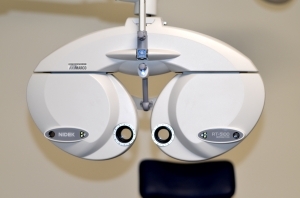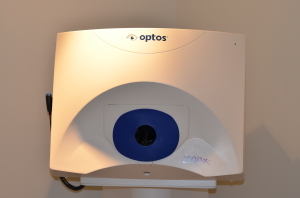We have the highest patient care standards
Our patient care standards are unequaled. We combine highly skilled professionals with the newest, state-of-the-art instrumentation for quick and comfortable care. Our friendly doctors and staff serve your needs, while providing the most complete eye care you’ll experience.
Office Hours & Info
- Monday
- 7:00am - 5:00pm
- Tuesday
- 7:00am - 5:00pm
- Wednesday
- 7:00am - 5:00pm
- Thursday
- 7:00am - 5:00pm
- Friday
- Closed
- Saturday
- Closed
- Sunday
- Closed
206-467-4100
206-467-4880
- 2121 Terry Ave, Ste 100
- Seattle, WA 98121
Eye Exams
At our office, our doctors believe in providing the best possible eye care through new technology and instrumentation. As primary gatekeepers of your eyes, our doctors will provide a thorough screening for all ocular conditions that can cause damage to your eyes.

To determine the overall health of your eyes, our examinations consists of:
- Comprehensive patient eye history
- Automatic computer refractions to determine your exact prescription
- Prescription for distance, intermediate and/or near vision
- Ocular health screening for glaucoma, diabetic retinopathy, and macular degeneration
Contact Lenses
We specialize in contact lenses that you can wear daily, monthly or even continuously. From patients with astigmatism to computer needs to sport contact lenses and even multifocal needs, our program is simple, but your benefits are vast. If you currently wear or want to wear contact lenses choosing us is your best, first step.

We fit contact lenses by understanding your needs:
- What are your daily visual demands?
- Do you plan on wearing contact lenses part-time or full-time?
- What is your lifestyle?
Advanced Retinal Screening
Consistent with the recommendations of the American Optometric Association and the American Academy of Ophthalmology, Northwest Eye Care strongly recommends that all patients receive a retinal-screening test along with their routine eye examination. Retinal screenings helps detect such problems as macular degeneration, glaucoma, retinal holes or detachments, and many systemic vascular problems such as, diabetic retinopathy, hypertension and arteriolosclerosis.

In the past, the only way to evaluate a patient’s retina completely was to dilate the pupil with eye drops, wait 20 to 30 minutes, and examine the retina through an instrument with bright lights. This procedure causes the patient’s vision to be blurry and their eyes to be very light sensitive for four to six hours because of the dilation of the pupil. Most patients dislike these temporary effects.
Another option is now available. In the last decade, a laser instrument called an Optomap has been developed that enables your doctor to perform a thorough retinal screening examination without dilation. West Seattle Vision has the Optomap technology available, so all patients now have a choice of retinal screening methods.
